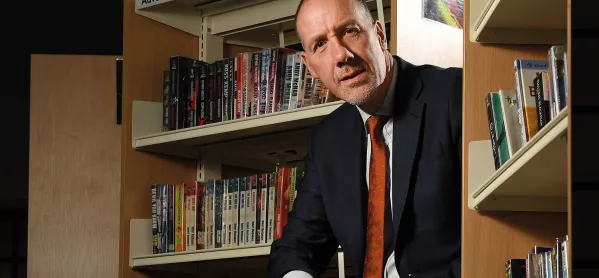- Home
- ‘Teachers, it’s time for us to reclaim education’
‘Teachers, it’s time for us to reclaim education’

The historian David Wootton reminds us what an English adult held as a set of beliefs back in 1600, before the impending scientific revolution took grip:
“He believes witches can summon up storms that sink ships at sea. He believes in werewolves: although there happen not to be any in England, he knows they are to be found in Belgium. He believes Circe really did turn Odysseus’s crew into pigs. He believes mice are spontaneously generated in piles of straw. He has seen a unicorn’s horn, but not a unicorn. He believes that a murdered body will bleed in the presence of the murderer. He believes that dreams predict the future, if we know how to interpret them. He believes, of course, that the earth stands still and the sun and stars turn around the earth once every 24 hours.’ (David Wootton, The Invention of Science, cited in Steven Pinker, Enlightenment Now: The Case for Reason, Science, Humanism and Progress)
How quaint and quirky the past sometimes looks. How old-fashioned. How passé.
But it gets you wondering what we in education might look back on one day, thinking “why on earth did we ever think that?’
How did we let it happen?
So as we head into a welcome half-term break - a time for emotional recharging and professional reflection - here are some questions we might ask ourselves about what we once believed:
- Why did we ever believe that watching a teacher teaching was telling us much about whether a learner was learning? Why do we have an obsession with lesson observation as anything other than a method for developing better teaching?
- Why did we ever think that using a set of pupil results was a fair way of judging the performance of a teacher and, therefore, it was right to link their pay to the outcome? Why the lack of recognition for the succession of previous teachers who - for good or ill - will have contributed to that child’s development?
- Why did we ever think it a good idea to link a child’s results in examinations to the performance of the teacher, headteacher and school, with the consequence of a “failing” head being dismissed and a “failing” school being taken over? Where was the evidence that this would improve educational standards rather than just inject turmoil into an over-anxious system?
- Why did we allow a discussion about skills and knowledge to become polarised into a spat about skills versus knowledge? Why didn’t we remind ourselves that the child who knows vocabulary also needs the skills to apply it when reading or writing, or that the dentist who fixes our teeth needs both knowledge of science and the physical skill not to drill through our lower lip?
- Why did we concede quite so easily that granting schools supposed independence, on such a scale and at such a pace, might lead to the fragmentation of the school system which we are now having to rebuild? Why didn’t we warn more vociferously that principled collaboration drives improvement better than raw competition?
- Why did we allow the mantra that ”education receives more funding than it ever has” to be anything other than a fatuous soundbite? Why didn’t we more forcibly respond that parents expect more from schools and colleges than they ever have, that children deserve more personalised support, and that schools continue to try to offer this full service despite the swingeing cuts in other services that we used to rely on?
- Finally, when did we begin to accept that politicians and policy wonks know better than teachers what should be in a national curriculum - the content, the quantity, the sequence? Why did we concede control quite so easily? When - and why - did we lose our professional self-confidence, and how do we get it back?
There are, of course, many other questions we might ask ourselves. But as I head into half-term, I sense a change of collective mood, a feeling that a period of convulsive experimentation with structures and systems in the English education system hasn’t led to the liberation teachers and leaders were promised, nor the accelerated rise in standards society may have expected.
And I sense a growing confidence from the profession that it’s time to reclaim education, to do things differently, to be clearer in articulating what we believe is right.
If my instincts are correct, then perhaps soon we’ll move from questions about our recent past to bolder solutions for young people’s futures. I hope so. They deserve it.
Geoff Barton is general secretary of the Association of School and College Leaders. He tweets @RealGeoffBarton
Keep reading for just £1 per month
You've reached your limit of free articles this month. Subscribe for £1 per month for three months and get:
- Unlimited access to all Tes magazine content
- Exclusive subscriber-only stories
- Award-winning email newsletters



